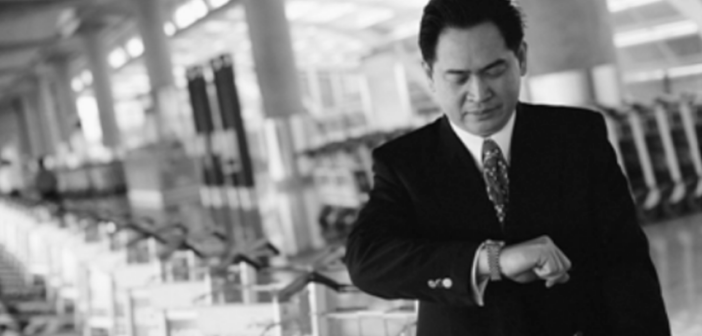By Brooke King, Staff Writer
As the busy holiday season approaches for Saint Leo student body and faculty, there are a few things you might not want to forget: your cell phone charger, your flight information, and your constitutional rights.
Heightened security at the airports this time of year will challenge your rights, as well as your privacy. The Transportation Security Administration’s (TSA) new innovating indecency to airline travelers is called the full-body image scanner. It is a rather large machine that takes images through your clothes and gives the operating crew of the machine an up close and personal silhouette of your body. This image shows not only your flesh, but every piercing, tattoo, scar, metal, and bone in your entire body. The new scanner is part of TSA’s aggressive approach at cracking down on terrorism at the airport.
There is, however, a silver lining. If passengers and airplane personnel (yes, the pilots and flight attendants are subjected to it as well) do not wish to go through the scanner, they may be assertively patted down and groped by a total stranger of TSA security. This new approach to “pat downs” is supposed to cut down on the amount of illegal substances and objects that make it through security. However, the new regulations in “pat downs” allow TSA officials to get more up close and personal with your body than they were previously allowed. Though these measures are here for the protection of everyone, has TSA gone too far?
In every major U.S. airport stands one of these machines, ready to violate your privacy. Selected at random, you will stand in the machine with your hands above your head, while the device takes detailed photo images of your whole body. After the scan is complete, the TSA official running the machine, will be staring at what looks like a photo negative of your full-length naked body. The image itself exposes all anatomy, as well as holes, cracks, and every contour line that exists on your body. If that wasn’t degrading enough, while you are waiting patiently to get a “Fly” or “No Fly” from the total stranger looking at a revealing image of your body, you are still subject to being patted down by TSA personnel at any point during the waiting process. And if you think that was still not enough to warrant being violated by TSA regulations, your bags can and will be searched with no probable cause, while you are in the scanner, waiting, or leaving the security checkpoint.
TSA spokesman Greg Soule said in a Press Conference November 5 that these new procedures will also be enacted if an airline traveler sets off the metal detector or has questionable material in a carry-on. So, even though you were not selected at random to go through the scanner, you will be politely and insistently escorted, along with your belongings, over to the full-body image scanner. So, if you thought that you were safe because you were not selected, think again.

Though some of the airline travelers do not see this as a violation of their privacy, but rather an added precaution to security measures, airline pilots do not see it that way. The device itself emits radiation, which is potentially hazardous to airline personnel and those who travel for business frequently. Though TSA said that those who request to be patted down will not be denied, pilots are hesitant to do so because the lines for the scanner are shorter and less of a hassle for a pilot who is late for a flight.
Even though these new added measures are for the protection of national security, at what point do our rights allow us to deny TSA? The statute of limitations, as it seems, does not pertain to the matter of airport security, which is protected under the Patriot Act.
“Not only do we think it’s unconstitutional invasion of privacy because the search is unreasonable; we also believe the federal agency exceeded its legal authority,” said Marc Rotenberg, the Executive director of the Electronic Privacy Information Center in a counter to the TSA’s new regulation scanner.
While some airline travelers are concerned for their safety, others are concerned for their rights. Though neither side of the argument is wrong, the rights of the airline travelers are being violated. The full-body image scanner violated at least five federal laws of privacy, as well as the Religious Freedom Restoration Act and the Fourth Amendment. Some measures are being implemented by TSA in an effort to combat recent complaints. The machine has no storage capacity to keep the images being taken, the identity of the passenger is not put onto the screen with the image, and children under the age of 18 are exempt from the scanner.
The question as to whether or not the rights of airline travelers are being violated and infringed upon by TSA regulations is still left unanswered. When there are only two options for travelers, go through the peep show machine or be groped vigorously by a stranger, the question is not if the airline traveler’s constitutional rights are being violated, but who is doing something to stop it?
As you make your way home for the holiday season remember that the full-body scanner that degrades and robs people of their privacy is just a friendly reminder that your tax dollars are at work to help make a safer means of travel for everyone and a terrorist-free United States.





